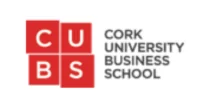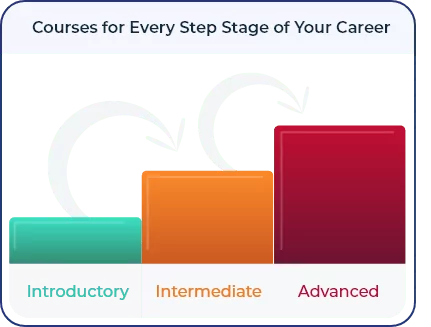Although Project Resource Management is not the first topic listed in the Guide to the Project Management Body of Knowledge (PMBOK® Guide), it is an area of crucial importance to any Project Management Professional (PMP)®. No matter what your scope, schedule or budget is, a Project Manager has to manage a team of people and the one thing that unites humanity is that we are all individuals – one management style will not suit everyone.
On this page:
- Managing Different Types of Team Members
- The Importance of Mentoring and Collaboration
- Velopi’s PMP® Exam Preparation Courses
Managing Different Types of Team Members
The interesting thing is that one management style will not suit the same person throughout their working life, so it is important for Project Managers to be aware that people require different management approaches at different stages of their careers. So, what worked with a team of twenty-somethings might be totally ineffective when faced with a team of sixty-somethings. While the Project Management Institute might not list project team members as project stakeholders, they certainly need to be studied carefully and the Project Manager’s management style adjusted accordingly.
Roughly speaking, we can divide project team members into three broad categories. According to Joseph Raelin, these are:
- Those finding their niche in the workplace
- Those who are “digging in”
- Those who are “entrenched” in a particular role.
The Importance of Mentoring and Collaboration
New graduates or younger team members with little or no experience are keen to obtain that experience. They will seek out variety and interest in the work as they try to zone in on what they should specialize in. Because they often have few financial responsibilities, they tend to be more demanding of the organization and of their front-line managers. According to Dr. Raelin: “These young professionals clearly want to be treated as professionals, so the way to retain them is to get them involved in decision making and work with them on a personal basis. If this is unsuccessful, particularly after repeated attempts to be accommodating, it may be best to terminate the relationship, especially if they begin to resort to workplace deviancy of one kind or another.”
This is good advice. There is only so far that a Project Manager can go. The project’s scope may not allow for as much interesting work as the young team member requires and many of the decisions about the project are made at a higher level. A high-flying new recruit may find the limitation of a small project extremely frustrating and demonstrate this frustration by “workplace deviancy” which could involve going off doing interesting work instead of concentrating on assigned project activities. Moving such a person off the team makes sense, but where s/he should go is another issue. If the person is genuinely gifted, then moving them to a more demanding role will reap benefits for the organization down the line. However, many graduates have an inflated view of their abilities and finding themselves going through the formal disciplinary process may be just the wake-up call they need.
Established professionals make good team members. As Dr. Raelin points out, these people “seek environments which are characterized by small work groups, collegiality and high pay”. The important characteristic of these people is a total lack of interest in management responsibilities. If the term “nerd” comes to mind, that is because work is the dominant aspect of their lives and they tend to work long hours and are generally not distracted by outside interests.
Of course, while this might be great for a Project Manager who needs dedicated and effective team members, there is always a danger that these people can become burned out or disillusioned. The Project Manager needs to make sure that they are aware of this possibility and that they are kept interested by keeping them up to date with their profession. Or, as Dr Raelin puts it: “Both they themselves and their managers need to monitor this tendency. One way is to make sure they do not perceive themselves as being overworked. Another way is to ensure their continuing involvement in the project by making use of their updated professional skills”.
Finally, we have the elder states(wo)men. They have reached a stage of life when they realize that they are not going to proceed any further in a hands-on technical role. “They realize, for example, that management is not as interested in their opinions as they once may have been. Although their job may not pay as much as they feel they deserve, they don’t consider it likely that they will find a job elsewhere due to a number of internal and external circumstances.”
For a Project Manager, these can be regarded as cynical old hands who are just serving out their days until the pension, or they can be looked upon as precious resources, full of knowledge and experience. Because elder professionals are still not interested in management roles and probably are beginning to go through the motions technically, they might come across as a drag on the project team. However, a perceptive Project Manager can tap into their professional pride by assigning an entrenched team member as a mentor to the junior staff. While the excitement of dreaming up novel designs has begun to pall, they can still provide considerable input by critiquing other designs. Decades of experience mean that older professionals can spot flaws that are not obvious to the new people but are painfully clear to someone who can still remember spending weeks on a customer site fixing just such an issue.
In many industries old stagers are viewed with distain. However, having a venerable character on the team can provide the raw recruits with the guidance they need to establish themselves and also the wisdom to warn established players away from the dangers of overwork. If you are studying for the PMP® exam as we speak, this is the sort of thing you need to consider during the Acquire Resources, as well as the Develop and Manage Team processes.
Velopi’s PMP® Exam Preparation Courses
Velopi’s PMP® Exam Preparation courses cover Project Resource Management in depth, including equipment and material resources, along with the other nine knowledge areas. Please visit our training page or contact us directly if you are interested in this, or any of the other project and program management courses we offer. Velopi is a Registered Education Provider for the Project Management Institute so these courses will give you the best opportunity of developing your project management career.

















